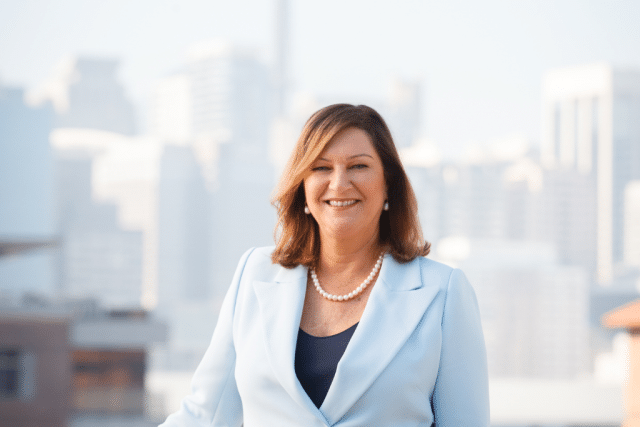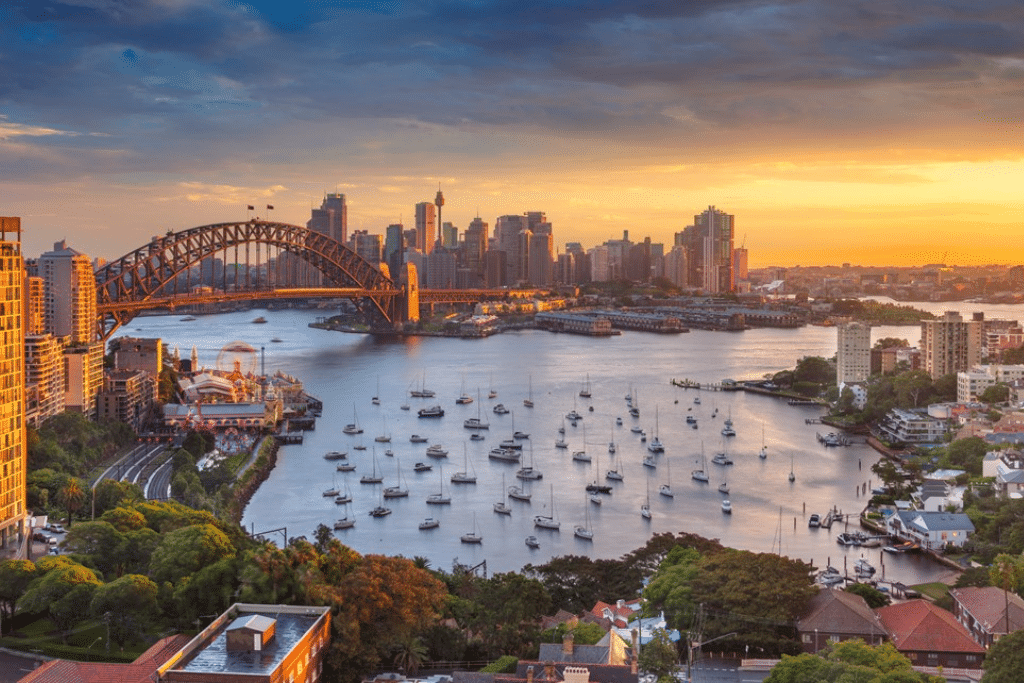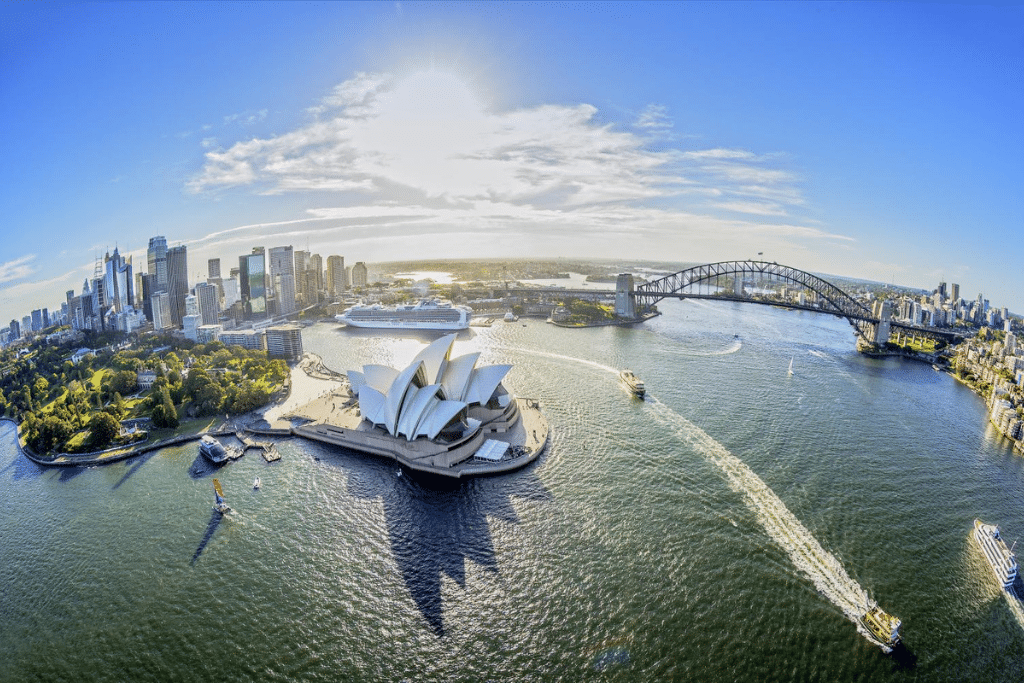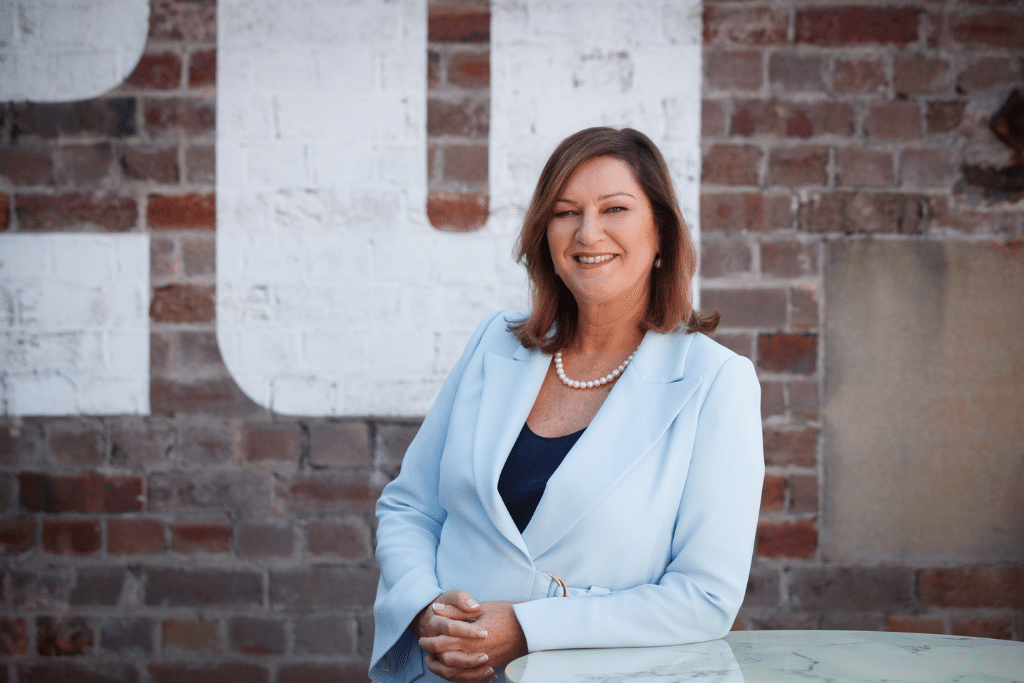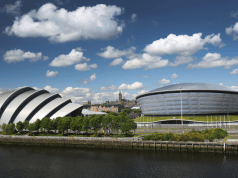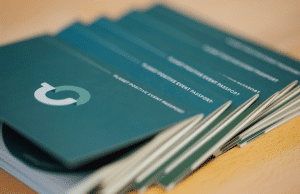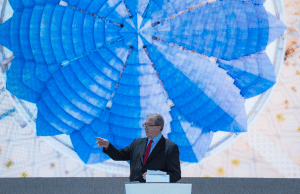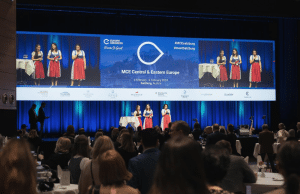DECARBONISING THE GLOBAL MEETINGS INDUSTRY
Kongres Magazine talked to Lyn Lewis Smith, CEO of BESydney on Sydney’s approach to decarbonising the meetings industry, how Australia and Sydney are tackling climate change and why every event matters.
Q1: What would be your answer to someone claiming that the environmental changes we are witnessing are not a consequence of human actions?
Specialist knowledge and expertise are at the heart of our sector, and we are uniquely placed to understand the benefits of learning from world-leading researchers and experts. So, I would point to the science and the expertise of the international scientific community, which recognises that human activity has caused increases in greenhouse gases that are the dominant cause of global warming and that continued emissions will lead to more warming with effects across the climate system. During the COVID-19 pandemic, the world has rightly focused on the role of scientific evidence to provide answers to our future; this can only be a positive sign for the net-zero movement, as more individuals across all parts of the world become more conscious of their actions and choices.
Q2: What does the slogan “think global, act local” mean to you?
While such a global perspective may seem overwhelming for some, it is the local action we each take that animates change. The global community is the sum of its parts, and – while there is immense value in leadership from intergovernmental bodies, international associations, governments and industries – policies and commitments can only be realised when they are implemented on the ground. This relies on the active participation of individuals. We can and must all play our part. Together our small actions add to great change, particularly if we do so with intent.
Q3: What do you see as the greatest environmental issue in your country and city?
Australia is a large country with an exciting diversity of distinct ecoregions and a vast coastline, so the answer to the first part of your question may depend on where you stand at any given time. In its most recent State of the Climate study (2020) the CSIRO – the Australian Government agency responsible for scientific research – reported increased frequency of extreme heat events, significant decreases in rainfall across southern regions, more frequent marine heatwaves, and rising sea levels that increase the risk of inundation and damage to coastal infrastructure and communities. All levels of the Australian government are working to develop unique Australian responses to these challenges.
The natural environs of Sydney are among our city’s greatest assets, and we are fortunate that our partners at the City of Sydney are firmly committed to addressing environmental issues and are working to make the city as green, global and connected as possible. This City was Australia’s first certified carbon neutral council in 2011 and will reach its 2030 target of reducing emissions by 70 per cent four years earlier in 2024. The City of Sydney’s Sustainable Sydney 2030 strategy tackles environmental priorities, including carbon emission reduction, energy efficiency, waste and water management and urban ecology. Our NSW State Government is also leading the nation with its responses.
Q4: How environmentally aware is your organisation? Can you elaborate by giving an example?
BESydney is very environmentally aware. Sydney was among the first cities to join the Global Destination Sustainability Movement (GDSM) in 2016 and we partner with the City of Sydney to report into the Global Destination Sustainability Index, which in 2021 found that our city’s sustainability performance ranked in the top 15 worldwide. We also work closely with industry leaders who drive the Australian environmental agenda and responses through our Global Ambassadors program. Among them we are proud to include Scientia Professor Dr Deo Prasad, an international authority on sustainable buildings and cities; Scientia Professor Veena Sahajwalla, the Director of the Centre for Sustainable Materials Research and Technology at the University of New South Wales; and Mike Cannon-Brookes, the co-founder and -CEO of global tech company Atlassian – which in 2020 set ambitious goals to combat the climate crisis and reach a net-zero future.
BESydney targets strategically important events to Sydney that help set national and global agendas. Most recently, this included the inaugural Australian edition of ImpactX Summit, which featured Richard Branson and our Ambassador Mike Cannon-Brookes. When booking events in our city, global event owners can identify suppliers with sustainability policies and practices via our expert supplier search: www.besydney.com.au/supplier-search/.
Q5: What we can measure, we can improve. Do you measure the carbon footprint of your events, and do you have a system of following environmental criteria in place?
Measurement is undoubtedly vital to understanding and improvement. We have done significant work to understand the impact of our sector. BESydney is proud to be an Associate Member of the Sustainable Destination Partnership developed with the City of Sydney, which brings leading hotels, event centres, cultural institutions and tourism bodies together to work to improve environmental performance. This partnership is informed by the City of Sydney’s data-driven strategy to identify how the accommodation and entertainment sectors can effectively reduce their impact on the environment and contribute to ambitious local government targets, which found that in 2019 the sector was responsible for 21 per cent of the city’s total greenhouse gas emissions; 14 per cent of water consumption; and 47 per cent of the city’s commercial waste.
As a result, the city developed a five-year plan of action to reach environmental targets. In addition, the analysis and reporting we conduct for the GDSI provide important benchmarking that allow us to regularly review our environmental criteria and impact. As an industry, we need to be focused on working with our global clients – associations and businesses – to hardwire climate-conscious decision-making into their events. See our case study in the GDSI 2019 White Paper (p21) here: https://www.gds.earth/reports/.
Q6: The transport of attendees’ accounts for more than 70 per cent of carbon footprint. How do you tackle this in your organisation?
Sydney is a city perfect for walking: it’s scenic, compact, and enjoys a good climate year-round. Walking accounts for over 90% of all trips in the city centre and our major partner venue – the International Convention Centre (ICC) – is within walking distance of more than a third of the city’s CBD hotels. Sydney also has an established, expanding and very affordable public transport system that includes rail, light rail, buses and ferries. While there is still work to be done to reduce the carbon footprint related to transport, the City of Sydney and New South Wales Government have both shown leadership and committed to Net Zero strategies, which consider transport. As partners to both, we will work to ensure our work aligns and benefits from opportunities to reduce carbon footprint. In terms of air travel to our destination, we are also pleased that Qantas, our Strategic Partner airline, was one of the first airlines globally to announce its commitment to achieving net-zero emissions by 2050 and capping net emissions at 2019 levels.
Q7: What advice would you give to those that would like to start changing the meetings industry into a sustainable one?
Making change requires collaboration and critical mass, so I would recommend that anyone seeking to improve the sustainability of their local industry identify partners across the supply chain, across government, and across the community; and work together to shape and deliver against shared objectives.
Q8: Can you give a good practice case from your company or your region?
BESydney has developed Sustainable Event Guidelines to provide a framework for our clients to consider when planning their event for Sydney and NSW; we promote the commitment of partners that have processes in place to minimise their environmental impact, and we actively help our clients find suppliers that have documented sustainability policies in place.
Our local partners, too, provide many examples of good practice. This includes the International Convention Centre (ICC Sydney), which reports against its energy, water and waste reduction commitments and is set to achieve Gold Certification under the Leadership in Energy and Environment Design green building certification program; and Sydney Airport, which has an Environment Strategy that includes measures to protect wetlands, develop a water recycling plant, and invest in eco-friendly ground transport.


